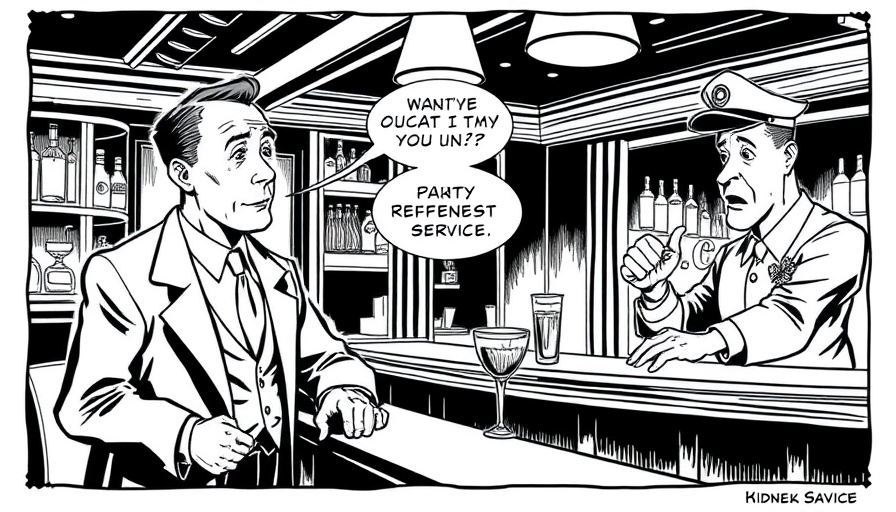
Reviving the Past: Isaiah Broussard's Amazing Journey Through Music
In a world where contemporary culture often overlooks its roots, Isaiah Broussard's new comic strip, Uppity, pulls back the curtains on the Jim Crow South, exploring the struggles and adventures of jazz musicians navigating a society rife with racial inequalities. A blend of humor, historical anecdotes, and genuine representation, this comic is more than a nostalgic trip; it's a reminder of joy in adversity.
Character Depth: Musicians as Heroes
Broussard’s characters are indeed musicians, but they are written with deep layers that go beyond their struggles. As Broussard explains, “I want to show the joy that people can still have. I think that’s important, especially in the times we’re living through.” This brings a unique perspective, allowing readers to see individuals not solely defined by their suffering, but as lively and vibrant figures despite their environments.
How History Inspires Modern Creativity
The characters and stories in Uppity are heavily inspired by Broussard's Great Uncle, who shared tales from his experiences playing music in the oppressive climate of the South. This rich history provides more than context; it fuels Broussard’s creativity and brings authenticity to his work, a factor that resonates well with readers, particularly in North Texas, where musical heritage runs deep. By mirroring personal experiences with broader societal challenges, Broussard creates a relatable connection for audiences.
Breaking Out of Boxes: Humor Amidst Hardship
One of the most appealing facets of Uppity is its humorous undertones. By employing humor as a coping mechanism, Broussard reveals the absurdity of discriminatory beliefs. Readers engaging with these comedic elements often find layers of meaning that encourage reflection on societal issues. Comic strips like Gasoline Alley and Peanuts paved the way for this type of storytelling; Broussard utilizes their charm while pushing forward with contemporary issues.
The Political Edge of Humor
Feedback from audiences, like Am-ra Nguyen, highlights how Broussard’s work captures the multifaceted existence of marginalized groups. She states, “The characters are not defined by their suffering…seems more real to me than stories of individual heroes rescuing people living in oppression.” This reinforces a crucial commentary on the importance of seeing individuals as whole people, encapsulating both their resilience and struggles.
Connecting to the Current Climate
In today's environment, where social justice movements continue to rise, the relevance of Broussard's work can’t be understated. By intertwining humor with historical narratives, Uppity speaks to a generation that values authenticity and critical commentary through art. As Broussard noted about overcoming mental health struggles within creative spaces, his pivot to humor in storytelling reflects the evolving landscape of dialogue among comics and political commentary.
This connectedness to current anti-racist dialogues offers new pathways for understanding how historical narratives remain alive and significant in modern discussions about race, identity, and community. In North Texas, where diversity and cultural narratives thrive, Broussard's comics take a prominent role in fostering conversation.
Remember to explore more about Uppity and its unique take on cultural resilience through the lens of music, humor, and history. It’s not just reading a comic; it's experiencing a story that bridges past and present, bringing communities together.
 Add Row
Add Row  Add
Add 




Write A Comment